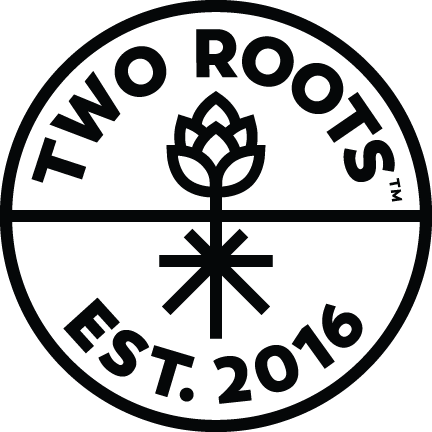Summary – 1 Minute Read.
Jealousy THCa is a cannabis strain distinguished by its high concentration of THCa, the non-psychoactive precursor to THC, offering potential therapeutic benefits without inducing a high. This makes it appealing for medical users seeking relief without psychoactivity, unlike OG Kush and Blue Dream which are THC-dominant and known for their strong euphoric effects. While Jealousy THCa shares some common terpenes with these strains, its cultivation requires specific techniques to maintain high levels of THCa. For those looking for non-intoxicating alternatives with health benefits, Jealousy THCa presents an intriguing option compared to traditional THC-heavy strains.
Weed Strain Jealousy THCa
When discussing the world of cannabis, one strain that has garnered significant attention is Jealousy THCa. This particular strain is known for its unique properties and effects, setting it apart from other popular strains like OG Kush and Blue Dream. To understand what makes Jealousy THCa stand out, it’s essential to compare and contrast it with these well-known varieties.
Firstly, let’s examine the cannabinoid profile of Jealousy THCa. Unlike traditional THC-dominant strains, Jealousy boasts a high concentration of THCa (tetrahydrocannabinolic acid), which is the non-psychoactive precursor to THC. When heated through smoking or vaping, THCa converts to THC, producing the familiar psychoactive effects. However, in its raw form, THCa offers potential therapeutic benefits without inducing a high. This aspect makes Jealousy THCa particularly appealing for medical users seeking relief without psychoactivity.
In contrast, OG Kush is renowned for its robust THC content and powerful euphoric effects. While this makes OG Kush a favorite among recreational users looking for a strong high, it may not be suitable for those who need to remain clear-headed during their day. Similarly, Blue Dream offers a balanced hybrid experience with both sativa and indica effects but still leans heavily on its THC content to deliver its signature cerebral stimulation.
A notable similarity between Jealousy THCa and other strains like OG Kush and Blue Dream lies in their terpene profiles. Terpenes are aromatic compounds found in cannabis that contribute to each strain’s unique flavor and aroma while also influencing their effects. Jealousy THCa shares some common terpenes with these strains, such as myrcene (which provides a relaxing effect) and limonene (known for its uplifting properties). Despite this overlap in terpenes, the presence of THCa in Jealousy results in a different overall experience compared to the more THC-heavy OG Kush and Blue Dream.
Another key difference arises when considering cultivation practices. Growing Jealousy THCa requires careful attention to maintain high levels of THCa throughout the plant’s lifecycle. This often involves specific harvesting techniques and conditions that preserve the acidic form of cannabinoids. In comparison, cultivating OG Kush or Blue Dream focuses more on maximizing THC content through various growing methods.
For those seeking an alternative to traditional high-THC strains due to concerns about psychoactivity or legal restrictions surrounding THC levels, Jealousy THCa presents an intriguing option. Its ability to offer therapeutic benefits without causing intoxication sets it apart from many other popular strains on the market today.
For individuals exploring new cannabis options or looking for non-intoxicating alternatives with potential health benefits, Jealousy THCa could be worth considering alongside more conventional choices like OG Kush or Blue Dream.
Ultimately, whether you prefer the potent euphoria of OG Kush or the balanced effects of Blue Dream will depend on your personal needs and preferences as a cannabis user. However, understanding how THCa differentiates itself within this spectrum can help you make more informed decisions about which strain best suits your lifestyle and wellness goals.
Frequently Asked Questions (FAQs):
-
What is Jealousy THCa?
- A cannabis strain high in THCa, not THC.
-
How does THCa differ from THC?
- THCa is non-psychoactive until heated to become THC.
-
What are the benefits of Jealousy THCa?
- Offers therapeutic benefits without psychoactivity.
-
How does Jealousy THCa compare to OG Kush?
- Jealousy has high THCa; OG Kush has high THC.
-
Does Jealousy THCa have terpenes?
- Yes, it shares terpenes like myrcene and limonene.
-
Why might someone choose Jealousy THCa over other strains?
- For therapeutic benefits without intoxication.
-
What makes cultivation of Jealousy THCa unique?
- Requires specific techniques to maintain high THCa levels.
-
Is Jealousy THCa suitable for medical users?
- Yes, especially those seeking non-psychoactive relief.
-
Can you get high from raw Jealousy THCa?
- No, only when heated does it convert to THC.
-
What strains are compared with Jealousy THCa in the article?
- OG Kush and Blue Dream.
Helpful Links:
- Leafly: Provides comprehensive information on cannabis strains, including user reviews, effects, and cannabinoid profiles.
- Weedmaps: Offers detailed strain descriptions and comparisons, along with dispensary locations and product availability.
- Medical News Today: Features articles on the medical benefits of cannabis compounds like THCa and THC.
- Project CBD: Focuses on the therapeutic uses of cannabinoids, including in-depth research on non-psychoactive options like THCa.
- High Times: Covers a wide range of cannabis-related topics, from strain reviews to cultivation tips.
Definition:
- Weed Strain: A specific variety of the cannabis plant that has distinct characteristics, such as flavor, aroma, and effects, often bred for particular qualities.
- Jealousy: In this context, likely the name of a specific weed strain known for its unique properties.
- THCa: Tetrahydrocannabinolic acid; a non-psychoactive cannabinoid found in raw cannabis that converts to THC when decarboxylated (heated).





